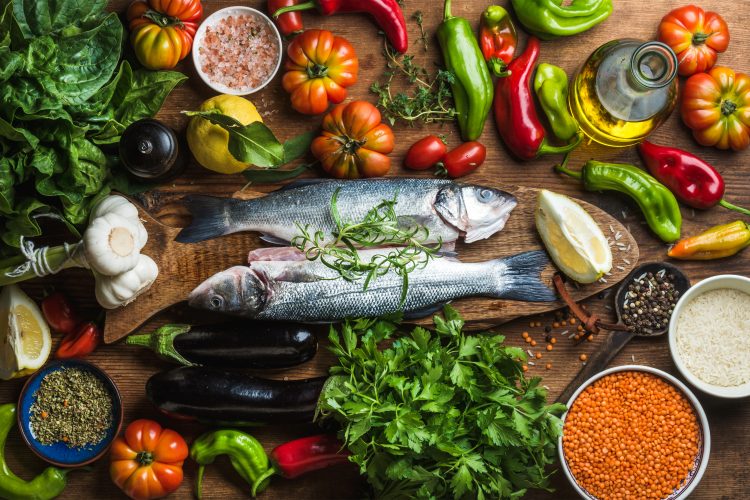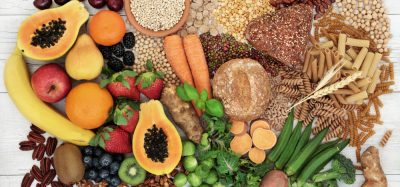Would a switch to a Mediterranean diet be kinder on the environment?
- Like
- Digg
- Del
- Tumblr
- VKontakte
- Buffer
- Love This
- Odnoklassniki
- Meneame
- Blogger
- Amazon
- Yahoo Mail
- Gmail
- AOL
- Newsvine
- HackerNews
- Evernote
- MySpace
- Mail.ru
- Viadeo
- Line
- Comments
- Yummly
- SMS
- Viber
- Telegram
- Subscribe
- Skype
- Facebook Messenger
- Kakao
- LiveJournal
- Yammer
- Edgar
- Fintel
- Mix
- Instapaper
- Copy Link
Posted: 1 December 2021 | New Food Magazine | 1 comment
Researchers from Germany and Austria have found that a switch to a vegan or Mediterranean diet would benefit the environment, though both diets do come with their drawbacks.


Is a Mediterranean diet better for the planet but worse for animal welfare?
It’s no secret that what we eat has consequences for our health and animal welfare. So when comparing diets, these aspects as a whole should be taken into account.
Experts refer to the optimal health of humans, animals and the environment as the “One Health” perspective. “Studies that apply this perspective to nutrition issues are still rare, however,” explained Juliana Paris of the Center for Development Research (ZEF) at the University of Bonn (Germany).
Actual food basket compared with three alternatives
Paris, together with colleagues, conducted an analysis that aims to fill this research gap to some extent. “To do this, we took a look at examples of which products are on the food basket of people in North Rhine-Westphalia (Germany),” she said.
“We then compared this reference diet with three different scenarios: a shift according to the recommendations of the German Nutrition Society (DGE), a shift to a Mediterranean diet with more fish and seafood, and a shift to a vegan diet.”
In each of these three scenarios, the foods were chosen to differ from the reference diet as less as possible. “That means, for example, that in the Mediterranean version, we increased the proportion of fish and seafood, vegetables and grain products,” Paris added. The researchers said the overall product selection should contain the same nutrients in similar amounts, which gave them a food basket for each scenario to analyse further.
“To do this, we relied on various databases,” said Dr. Neus Escobar of the Institute for Applied Systems Analysis in Austria, who supervised the work. “They enabled us, for example, to estimate the impact of each diet on certain environmental aspects – such as the amount of greenhouse gases produced during their production or the water consumption. We took a similar approach to assess the impact of each diet on health.”
The researchers estimated the consequences for animal welfare using several indicators. These included how many animals lose their lives as a result of food consumption and under what conditions they are kept. “But we also used the number of neurons or the size of the brain in relation to the body to estimate the extent to which the respective animals actually suffer when they are used,” explained Juliana Paris.
Fish instead of steak: good for the environment, bad for animal welfare?
Any of the three diets would be sustainably beneficial from a One Health perspective, according to he researchers. However, this is also at the expense of other aspects. The vegan diet scored best in many areas. However, the production of vegan food involves increased water consumption. “In addition, vegans need to take certain nutrients separately, such as vitamin B12, vitamin D and even calcium,” Paris said.
The Mediterranean diet (although healthy) also results in increased water requirements due to the high amount of nuts and vegetables. Moreover, if – as assumed in the study – the meat consumed is completely replaced by fish, its effects on animal welfare are surprisingly negative.
As fish and seafood are much smaller than, for instance, cows or pigs, considerably more animals suffer as a result of this diet. The increased consumption of honey, which requires intensive management of bee colonies, also has a negative impact. “It’d therefore beneficial to meet less of your overall protein needs from animal sources,” Neus Escobar emphasised.
“In addition, many people today have diets that are significantly too rich. If they reduced the amount of food they ate, to what they really need, it might have additional positive effects.”
According to the study, the DGE recommendations are going in the right direction. However, in terms of human health, researchers claim that the other two options (vegan and Mediterranean) are better.
The researchers claim the data is quite clear though: if you do without meat more often and instead put whole grains, vegetables and fruit on your plate to benefit the planet and the animals that live on it.









Opting for a vegan diet is easier, better, and more compelling than ever. Many of the world’s top athletes are doing so. There are marvelous vegan versions of virtually every type of food imaginable. Why cause animals to be harmed/killed when there’s no need to do so?!